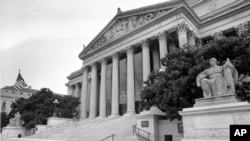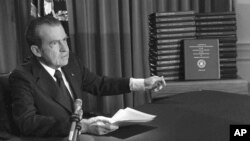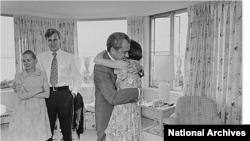The circumstances surrounding Monday's FBI raid on former President Donald Trump's Mar-a-Lago mansion in Palm Beach, Florida, were not immediately clear, according to media reports. However, the Justice Department has been actively investigating the discovery of a box containing classified information that was brought into Trump's residence in Florida after he left the White House in January 2021.
Why, call transcripts, drafts, speeches, handwritten notes and other documents during Trump's presidency held by the National Archives.
"The president's records are the property of the U.S. government and are managed by the National Archives," said Meghan He Ryan Gashorne, the agency's deputy chief operating officer. increase. “Thus, all presidential documents, materials, and records held by the National Archives, whether donated, seized, or governed by the Presidential Records Act, are federally owned.”

The Presidential Records Act of 1978 stipulates that all presidential records are the property of the public and that when presidential records are made public, It was soon established that it would be automatically transferred to the custody of the National Archives. Commander-in-Chief resigns from his post. All presidential libraries and museums are part of the National Archives. Former President Barack Obama's presidential library will be fully digital for the first time.
"The National Archives and Records Administration is the official records manager for the United States government," he said, Ryan Guthorn. “Only about 1% to 3% of records are considered permanent records. Let us [and] record our history as a nation."
Presidential records were not always in the possession of ordinary citizens.

"From George Washington to Jimmy Carter, presidential administration papers were considered private property of the president," said Ryan Guthorn.
Most commanders-in-chief donated presidential papers, a precedent set by President Franklin D. Roosevelt in 1940. during the Watergate scandal that ultimately led to his resignation.

Congress suspected the tapes contained evidence that could incriminate the president. Legislators passed the Presidential Records and Materials Preservation Act of 1974. This only applied to President Nixon's materials, and he was instructed that materials related to the Watergate scandal be retained by his NARA.
Nixon fought to keep presidential records private during his lifetime. NARA received most, but not all, of the recordings associated with Watergate. After Nixon's death, his family donated presidential papers and other materials.
``I got a call from Julie Nixon Eisenhower and she said she wanted to see me and said the family wanted to reconcile,'' she said, from 1995 to 1995. John Carlin, who served as, says: 2005.
Nixon's daughter contacted him in June 1995, his first week on the job, more than 20 years after Watergate. I was.

"You have to remember that in those days, presidential records were private," Carlin said. “Nixon was going to protect them and he had the law on his side. It was news... when he [Nixon] was alive, he fought it. That is, teeth and claws. A settlement was never reached.
Among those who have access to White House records are presidential scholars like Shannon Bow O'Brien who are interested in documenting history.
"People can initiate requests through the Freedom of Information Act five years after the administration ends, but the president can invoke certain restrictions on public access for up to 12 years." You can do it," said O'Brien. Professor in the Department of Government at the University of Texas at Austin College of Liberal Arts.
“If we do not have access to this material, we cannot access the truth. We have access to only a select set of truths, which are not always the most accurate."


